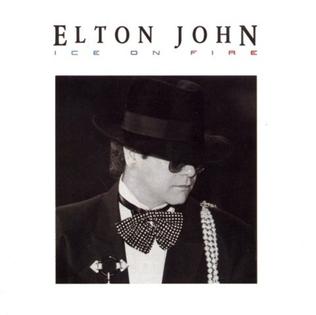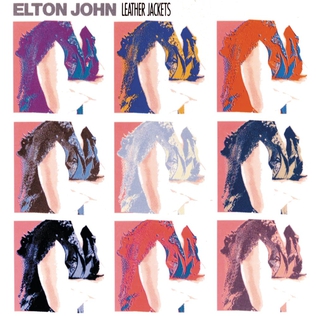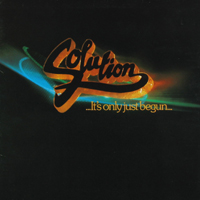History
Like the preceding album Cordon Bleu , Fully Interlocking was produced by Gus Dudgeon and released on the label he set up with Elton John. Another name reappearing from Cordon Bleu was engineer Phil Dunne, while Hipgnosis again did the artwork. This time the recording location was switched from Wales to The Sol in Cookham, England.
Fully Interlocking comprised four jazzy instrumental pieces sandwiched by two vocal songs, the lyrics of which were written by singer Guus Willemse. This album shares the highest quantity of instrumental tracks with their first album Solution (1971); the other four albums they released included more songs with lyrics. "Give Some More" was released as a single in Europe, backed by an edit of "Chappaqua" from Cordon Bleu. "Empty Faces" was also a 45, with "French Melodie" as the B-side.
Fully Interlocking charted in the Netherlands on 5 November 1977, reaching #30 and spending 7 weeks on the chart.
The album was re-released by CBS in 1980 (again on vinyl) and 1988 (on CD).
Personnel
Tom Barlage: alto sax, soprano sax, flutes, string-ensemble, organ, percussion, electric piano
Willem Ennes: electric piano, acoustic piano, organ, synthesizer, string-ensemble
Guus Willemse: bass guitar, lead vocals
Hans Waterman: drums
- All backing vocals by Tom, Willem and Guus.
- Ray Cooper - congas and percussion on "Give Some More" and "Free Inside"
- Stuart Epps - additional backing vocal on "Empty Faces"
Producer: Gus Dudgeon.
Engineer: Phil Dunne.
Assistant engineer: Stuart Epps.
Mastering: Ian Cooper at Utopia Recording Studios.
Recorded by Moonlight.

Here and There, released in 1976, is a live album by English musician Elton John; it is his fourteenth official album release. The title refers to the two concerts represented on the album: "Here" is a concert recorded at the Royal Festival Hall in London during the summer of 1974; "There" is a concert recorded at New York City's Madison Square Garden on 28 November 1974.

A Single Man is the twelfth studio album by English musician Elton John. Released in 1978, it is the first album for which Gary Osborne replaced Bernie Taupin as lyricist. It is also the first of two John albums that, on the original cut, have no tracks co-written by Taupin.

A Christmas Album is the fifth studio album and the first Christmas album by Christian music singer Amy Grant. The album was recorded in nine studios in mid-1983 and was released later that same year.

Poi Dog Pondering is an American musical group which is noted for its cross-pollination of diverse musical genres, including various forms of acoustic and electronic music. Frank Orrall founded the band in Hawaii in 1984, initially as a solo project. In 1985 Orrall formed the first line-up of PDP to perform its first concert; at the Honolulu Academy of Arts. The band embarked on a yearlong street performance busking tour across North America. They eventually settled down in Austin, Texas in 1987, where they recorded their first three albums. In 1992, the band relocated to Chicago and they began to incorporate orchestral arrangements and elements of electronic, house music, and soul music into their acoustic rock style. The membership of Poi Dog Pondering has evolved from album to album, with Frank Orrall being a constant player since the inception of the band.

Ice on Fire is the nineteenth studio album by English musician Elton John. Recorded at Sol Studios and released in November 1985, it was his first album since Blue Moves produced by his original long-time producer, Gus Dudgeon. David Paton and Charlie Morgan appear for the first time on bass and drums respectively, replacing original band members Dee Murray and Nigel Olsson. Fred Mandel, who had played with John during the Breaking Hearts tour, also contributed guitar and keyboards.

Leather Jackets is the twentieth studio album by English musician Elton John. Recorded at Sol Studios in England and Wisseloord Studios in the Netherlands, it was released in 1986 and was his first album not to have any top 40 singles in either the US or the UK since 1970's Tumbleweed Connection, which had no singles released from it. It is also the poorest-charting album of his career.

Whatever Happened to Benny Santini? is the debut album by the British singer-songwriter Chris Rea, released in 1978.

Deltics is the second studio album by British singer-songwriter Chris Rea. It was released in 1979 on Magnet Records. The album is named after the East Coast rail network's Deltic-class locomotives that were used in the 1960s and 1970s. The album is Rea's first album to chart on the UK Albums Chart, peaking at number fifty-four. The single "Diamonds" peaked at number forty-four on both the UK Singles Chart, and Billboard Hot 100, where it charted for eight weeks. The B-side of this single "Cleveland Calling" is not included on the CD reissue of the album. The album producer Gus Dudgeon had made several early albums with Elton John.

Solution were a Dutch progressive rock band that existed from 1970 to 1983, during which time they released six studio albums and one live album. They incorporated jazz, rock, pop and soul influences, becoming more commercial on their fifth and sixth albums.

How About Now is the thirteenth studio album by American singer-songwriter Kenny Loggins. Released in 2007, its key tracks include "A Love Song" and the title track, "How About Now." As of 2019 it is his most recent album of original material.

Cordon Bleu is the third album by the Dutch symphonic rock group Solution. It was released in 1975 on Elton John's label, The Rocket Record Company.

...It's Only Just Begun... is the fifth album by the Dutch symphonic rock group Solution. It was released in 1980 on CBS Records.

Divergence is the second album by the Dutch progressive rock group Solution. It was released in 1972 on the EMI subsidiary Harvest Records.

Solution is the first album by the Dutch symphonic rock group Solution. It was released in 1971 on the Decca label.

Runaway is the sixth and last studio album by the Dutch rock group Solution. It was released in 1982 on CBS Records.

Sol Studios is a recording studio located in Cookham, Berkshire, England. The recording studio and control room are part of the complex property, along an old watermill and residential wheelhouse in the countryside. The property was bought in 1974 by Gus Dudgeon, and the recording studio was built in the following year. Gus ran the studio as his own production facility until running into financial trouble when the studio was sold to Led Zeppelin's Jimmy Page. Page decided to revert to the old name of "The Sol".

Heart and Soul is the eighteenth studio album by American country music artist Ronnie Milsap, released in 1987. The album produced four singles, three of which claimed the top spot on the Billboard country singles chart" "Snap Your Fingers"; "Make No Mistake, She's Mine," a duet with Kenny Rogers; and "Where Do the Nights Go." Two other singles, "Old Folks," a duet with Mike Reid; and "Button Off My Shirt" peaked at #2 and #4 respectively on the country charts. "Button Off My Shirt" was also recorded that same year by Mike + The Mechanics & Ace vocalist Paul Carrack for his solo album "One Good Reason".

Back and Fourth is a 1978 album by English rock band Lindisfarne. Released in nine countries on three record labels, it reached position 22 on the UK album charts and contained the successful single "Run for Home".

New Cool Collective is a Dutch musical ensemble founded in 1993, core members are Benjamin Herman (sax), Joost Kroon (drums), Frank van Dok (percussion), Willem Friede, Jos de Haas (percussion), Leslie Lopez (bass) and David Rockefeller (trumpet).

Home Suite Home is an album by Patrick Williams, released by BFM Jazz / Varèse Sarabande on October 2, 2015. It earned Williams a Grammy Award nomination for Best Large Jazz Ensemble Album.



















